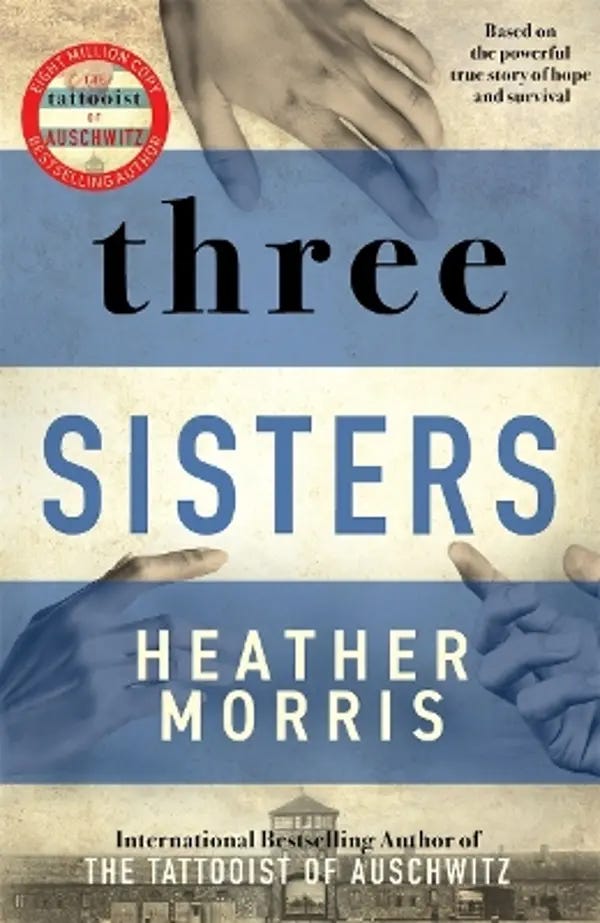Again, for the third time, I’ve had the pleasure of being amazed by Morris’ writing. Again, I’ve been sucked right into the story from the very first page and when you know that what you’re reading is based on a true story, it amazes me even more.
When they are girls, Cibi, Magda and Livia make a promise to their father - that they will stay together, no matter what.
Years later, at just 15 years old, Livia is ordered to Auschwitz by the Nazis. Cibi, only 19 herself, remembers their promise and follows Livia, determined to protect her sister or die with her.
In their hometown in Slovakia, 17-year-old Magda hides, desperate to evade the barbaric Nazi forces. But it is not long before she is captured and condemned to Auschwitz.
In the horror of the death camp, these three beautiful sisters are reunited. Though traumatised by their experiences, they are together.
They make another promise: that they will live. Their fight for survival takes them from the hell of Auschwitz on a death march across war-torn Europe and eventually home to Slovakia, now under iron Communist rule. Determined to begin again, they embark on a voyage of renewal, to the new Jewish homeland, Israel.
When I read books based on true stories I feel like there is a different discussion as far as character building. When I read a work of fiction I normally place weight on how the author develops the character during the story. Here, in this book, I put more weight on how the author presents the characters, their struggles, and collective struggles to the reader. The three sisters are very different and it was enriching to see how Morris told their individual stories within the collective story. Morris is in a class of her own when it comes to these descriptions of environments which, for the reader, might be hard to imagine. She gives a truth-worthy description of the sister’s struggles without it tipping over to become too much if you know what I mean? When explaining and describing tragedies such as those of the Meller sisters you walk a fine line between it tipping over to become too much and when it is just right. Morris, in my opinion, stays on the path of just right.
If you’ve read the previous stories by Morris' you get a nice glimpse of familiar characters in passing. Strangely this made me understand the vastness of this horror on a greater scale than what I’ve previously done. I’ve never experienced an author doing this. Whether it’s lucky coincidences or something else it makes the stories connect. What was also different for me in this book was that as a reader you’re presented with the conscience of some of the Auschwitz guards in a different way than in other books. Here, there are small exchanges putting things into a small perspective of disregard for what the Nazis did. A character, Volkenrath for example, appears firm in what she believes in and yet there is something in her that makes her act in contrast to her beliefs. We know from history that many volunteered to join the Nazis but became less firm in their beliefs when they saw what was expected of them. Some joined out of fear for their own lives and their families and many, sadly, because they truly believed in the cause. I think it’s nice that the many perspectives of camp life are presented the way it is here. For me as a reader, it makes it easier to at least begin to understand how the camp functioned in its gruesome ways.
I rarely shed tears when I read a book but Morris is one of the few authors who are able to make this happen. Whether it’s also affected by the fact that I saw the movie One Life last weekend and was very moved by it might also have something to do with it. I’m not going to spoil at which point I began to cry. That would ruin too much of the story. I learned quite a few new things along the way which I very much appreciated. In many ways, a lot of this learning comes towards the end of the book where the sisters make their way to Israel.
If you are looking for a raw, wholesome and wonderful story about hope, family and love then I really do recommend that you pick up this book. It’s suitable for 16-year-olds, depending on the person, and above I’d say.
Published: 2021
Genre: Nonfiction
Theme: Holocaust, family, survival
- The Book Reader





